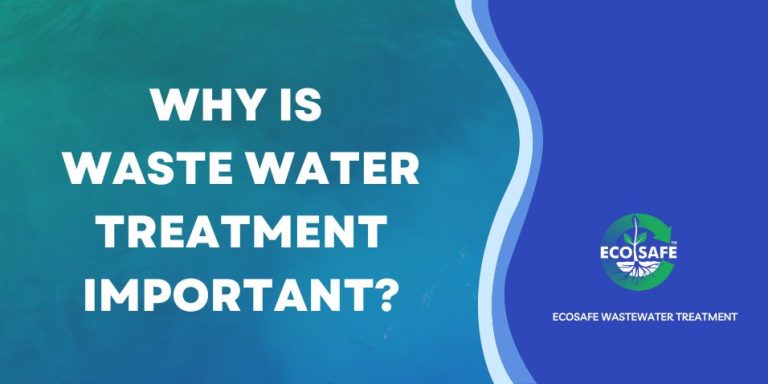The Single Strategy To Use For Reclaim Waste
The Single Strategy To Use For Reclaim Waste
Blog Article
Reclaim Waste Can Be Fun For Everyone
Table of ContentsReclaim Waste Fundamentals ExplainedThe 15-Second Trick For Reclaim WasteTop Guidelines Of Reclaim WasteReclaim Waste - TruthsSome Known Details About Reclaim Waste
Explore the kinds, incidents, and forms of fluid waste. Residential sewage waste describes the waste and items from a property sewage-disposal tank. This sort of waste is developed by human beings in residences, institutions, and other structures. This only consists of septic storage tanks that have a drain area. The appropriate management and disposal of residential sewage waste call for liquid waste to be moved to a sewer treatment plant where the correct techniques and tools are related to purify and get rid of waste.
Commercial waste typically consists of potential threats, such as flammable products or a mixture of liquid and strong waste items, and requires an advanced and comprehensive disposal procedure. The disposal of business waste commonly involves the filtering of waste prior to transport to guarantee risk-free and correct disposal. Industrial waste is developed from results and runoff of commercial procedures and production.
This kind of waste can not make use of the same sewage management transport or processes as septic or business liquids. The hazardous waste management procedure requires the assessment and testing of liquid waste before it undertakes the disposal process (liquid waste removal). Runoff waste is the liquid waste that comes from runoff and excess stormwater in extremely populated areas or cities
Overflow waste can trigger contamination and flooding if not dealt with correctly. Guaranteeing proper waste monitoring can stop catastrophes and decrease ecological damage.
The Ultimate Guide To Reclaim Waste
Get in touch with PROS Services today to discover about our waste monitoring and disposal services and the correct ways to look after the liquid waste you generate.
(http://www.place123.net/place/reclaim-waste-laverton-north-vic-australia)Do you know what takes place to your water when you end, flush the toilet or drain pipes the washing machine? No? Well, it deserves knowing. This supposed 'wastewater' is not only a vital source however, after therapy, will certainly be released to our land, waterways or the sea. Used water from bathrooms, showers, baths, cooking area sinks, laundries and industrial procedures is referred to as wastewater.

water made use of to cool down equipment or clean plant and tools). Stormwater, a form of wastewater, is drainage that flows from farming and urban areas such as roofs, parks, gardens, roadways, paths and rain gutters right into stormwater drains, after rain. Stormwater flows unattended directly to regional creeks or rivers, at some point reaching the sea.
Things about Reclaim Waste
In Queensland, the majority of wastewater is dealt with at sewer therapy plants. Wastewater is transported from domestic or industrial websites via a system of sewage systems and pump terminals, understood as sewerage reticulation, to a sewage treatment plant.
The Division of Natural Resources advises city governments regarding managing, operating and maintaining sewage systems and therapy plants. In unsewered areas, regional governments may require owners to mount private or household sewer treatment systems to deal with residential wastewater from bathrooms, kitchens, shower rooms and laundries. The Division of Natural Resources authorizes the use of home systems when they are proven to be reliable.
The majority of stormwater gets no treatment. In some brand-new communities, therapy of some stormwater to eliminate litter, sand and crushed rock has actually begun making use of gross contaminant traps. Wastewater treatment takes place in 4 stages: Gets rid of solid issue. Larger solids, such as plastics and other things incorrectly released to drains, are removed when wastewater is passed via screens.
Wastewater then moves into huge storage tanks where solids clear up and are removed as sludge. Oil and scum are skimmed from the surface area. Uses small living microorganisms referred to as micro-organisms to damage down and remove staying liquified wastes and fine fragments. Micro-organisms and wastes are integrated in the sludge. Eliminates nitrogen and phosphorus nutrients that might cause algal blossoms in our waterways and endanger aquatic life.
What Does Reclaim Waste Mean?
Nutrient elimination is not available at all sewage treatment plants since it requires costly specialist tools. It is becoming more common in Queensland. Clear liquid effluent produced after treatment may still contain disease-causing micro-organisms. If this effluent is launched right into rivers such as rivers or the sea, the micro-organisms will at some point die out.

This typically implies wastewater has to be dealt with or impurities eliminated before it can be released to rivers. A lot of wastewater streams into the sewerage system. Under the Act, city governments provide approvals and permits for ecologically pertinent activities (Periods) involving wastewater launches that may have a regional effect. The department carries out authorizations and licences to Periods including wastewater releases that may have a regional or statewide influence.
The Of Reclaim Waste
Otherwise, examples are considered laboratory evaluation. Frequently lots of examinations are needed to establish the degrees of each of the various pollutants such as oils, heavy metals and pesticides in water. Surveillance gives factual info about water quality and can confirm that licence conditions are being satisfied. The details gotten through tracking supplies the basis for making water high quality choices.
Report this page